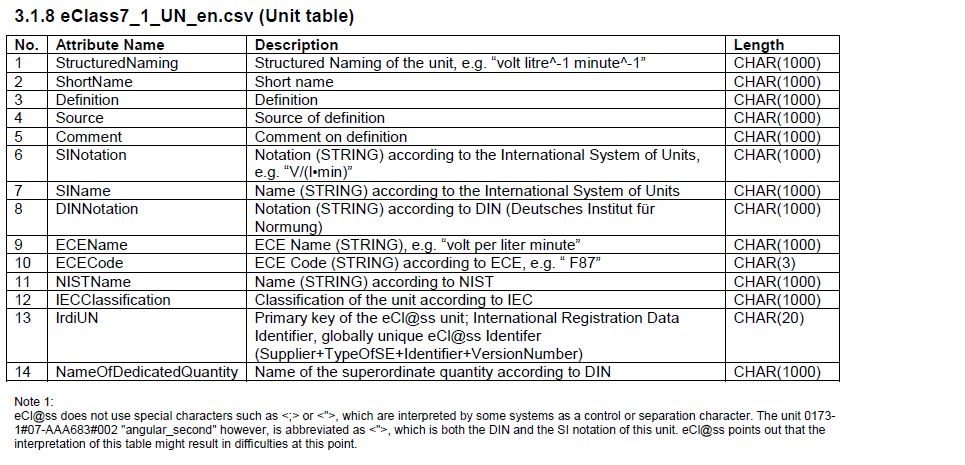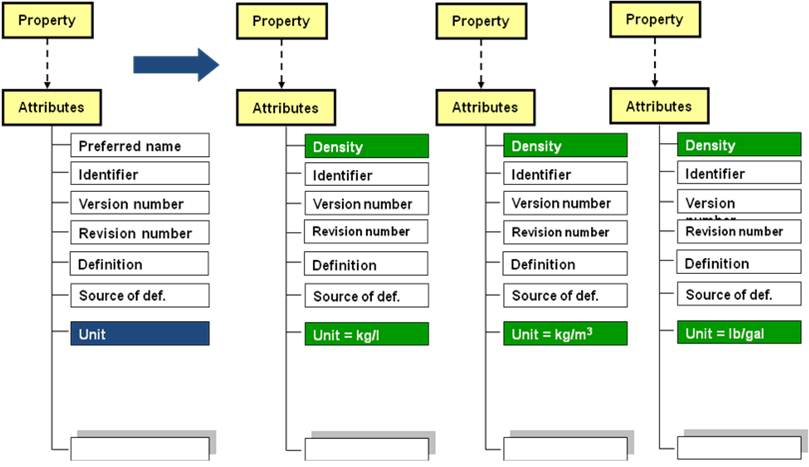Unit
A unit in ECLASS today is a distinct structural element. Before ECLASS 7.0, units were simply text attributes of properties and hence, many errors occurred. With release 7.0, units are standardized structural elements with their own ID - based on DIN and ECE units. ECLASS refers to standardized units by DIN and ECE, but is - under certain circumstances - open for other units needed by the market.
Units that measure the same phenomenon can be compared and converted into each other. A quantity collects a set of units between which a conversion is defined and intended.
Element structure (unit)
The following part will describe how the structural element "unit" is structured and what attributes it consists of. All attributes are named in CamelCase writing. Attributes can be mandatory or optional, can be created automatically or manually by the user and underly certain rules. All of them are limited to a certain amount of characters. The attributes are based on the information about units in the DIN property server.
Release notes (Unit)

The description of a unit in the BASIC release notes is as follows (update: release 7.1):
Change Request
As most of the units used in ECLASS are based on standardized units by the DIN and ECE, change requests for units are not possible for requestors in the ECLASS ContentDevelopmentPortal. Plus, changes on units do not occur often, as they describe the physical environment on earth. Changes on units can be submitted via eMail to the ECLASS office.
Alternate Unit
In some cases, e.g. for measuring equipment, it is necessary to allow a number of alternative units for one property which must describe the same physical phenomena (IEC property class type). The dictionary structure shall allow to assign primary and alternative unit to a property, to express the possible units for a property. This feature is only valid in the ADVANCED version.
EXAMPLE:
